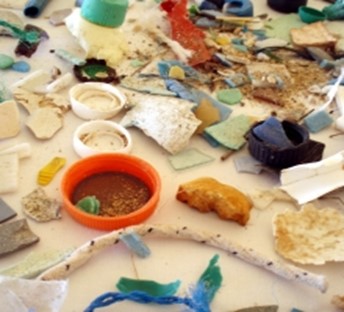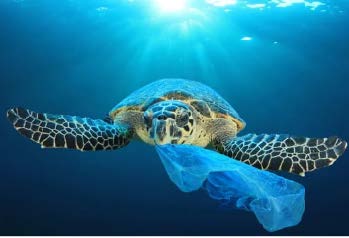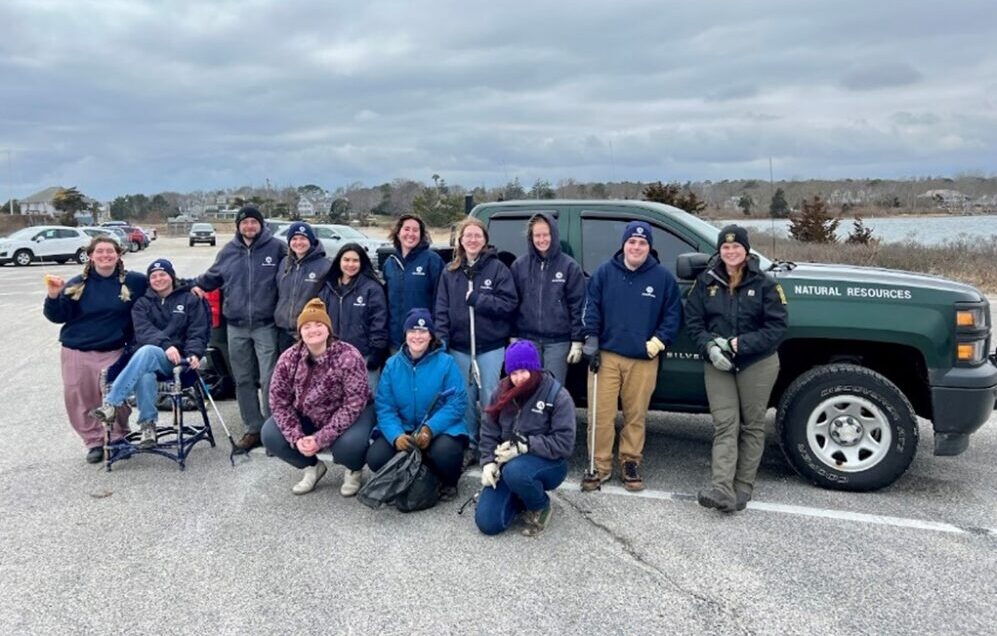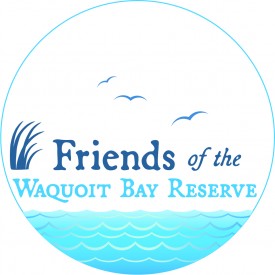
Microplastics are tiny plastic fragments. They can be found in water, soil, air, and inside the bodies of animals. If consumed, they can be harmful to a variety of marine animals. Image source – NOAA.
The Problem with Plastic:
Plastic is used to make many consumer products, including fishing gear, diapers, clothing, toys, electronics, household appliances, cars, and food packaging. Plastic production shows no sign of slowing down even though many tons are produced annually. Plastic is versatile and cheap to produce, but it is a harmful source of pollution. Plastic production contributes to greenhouse gas emissions and the plastic that we discard on land washes into our oceans, polluting the water and harming marine life. Microplastics, or plastic fragments less than 5 millimeters long, are especially harmful due to their small size. Some common sources of microplastics include clothing fibers, microbeads in cosmetic products, and fragments of larger plastic items that form when these items are exposed to sunlight, wind, and waves. Microplastics can now be found almost anywhere, even in our bodies and food. They can also move up food chains and pose health risks to marine organisms. Not much is known about how microplastics impact human health, but recent research by the Woods Hole Oceanographic Institute has found that they may pose health risks. Visit the “Learn More” page to read more about microplastics and their potential effects on humans.

Sea turtle that has ingested a balloon. Ballons are an especially harmful source of plastic waste since they can look like food to some animals. Image Source – NOAA.
Facts About Plastic Pollution:
The scale of the plastic problem is quite surprising. Here are some startling facts about plastic.
- About 8 million tons of plastic trash enters the world’s oceans every year (National Geographic).
- 80% of plastic trash that enters the ocean comes from land-based sources (NOAA).
- Only 9% of plastic trash is recycled. The majority of plastic ends up in landfills or the environment (Plastic Soup Foundation).
- Sea turtles sometimes ingest plastic items like shopping bags and balloons after mistaking them for jellyfish.
- Plastics account for 4 to 5% of greenhouse gas emissions (Woods Hole Oceanographic Institution).
- Ocean plastic has been found as deep as the Marianna’s Trench, or about 36,000 feet below sea level (National Geographic & WHOI).

Year 25 AmeriCorps member Grace Vachon (front row, far right) cleaning up Dowses Beach in Barnstable with her fellow service members. Beach cleanups are a great way for community members to address the littering and plastics problem.
The Initiative: What is Tackle the Trash and How You Can Help
Are you concerned about plastic pollution and want to tackle the issue within your own community? If that sounds like you, consider taking part in the following initiative. Waquoit Bay Reserve, in conjunction with the Year 25 AmeriCorps Cape Cod member Grace Vachon, are piloting a project this spring and summer season which we are calling Tackle the Trash. As part of this pilot project, we are asking community members to do three simple things: clean, track, report. When you visit any beach in Falmouth or Mashpee starting June 2024, be on the lookout for trash, especially small plastic fragments. Collect this trash and properly dispose of it in a receptacle. Keep track of what you are finding and report your findings using the forms that we provide. We are gathering information on the types and quantities of trash found at local beaches, including properties managed by the reserve, so we can identify where to focus our anti-littering and anti-plastic education efforts. Please see the steps below detailing how to get involved with this project.
How Can You Get Involved?
Step 1: Visit any beach in Falmouth or Mashpee.
Step 2: Find a bag or other container to put your trash in.
Step 3: Look for and collect trash.
Step 4: Use our online form to record your findings. The form can be accessed via the button at the top of the page. Flyers with a QR code that links to the form and webpage will also be available at our kiosks.
Step 5: Properly dispose of your trash in a receptacle.
Want to continue your beach cleanup efforts? Participate in COASTSWEEPS this Fall!
Learn More:
Please visit the following links to read more about plastic pollution and related topics.
Some videos on plastics from NOAA’s Trash Talk series:
Plastic Soup Foundation Website
Research at the Reserve Plastics Presentation (Waquoit Bay NERR)
Here are some interesting articles about microplastics:
- Tracking a Snow Globe of Microplastics (WHOI)
- How Deep do Marine Plastics Go? (WHOI)
- Microplastics are in our bodies. How much do they harm us? (National Geographic)
- WHOI helps lead groundbreaking study on the human and ocean health impacts of ocean plastics – Woods Hole Oceanographic Institution
Read more about COASTSWEEP and International Coastal Clean Up:
Acknowledgments:
This project was developed and executed by Grace Vachon with help from Nicole Vandale.
Grace Vachon: Grace Vachon is Waquoit Bay Reserve’s Year 25 AmeriCorps Cape Cod member. As an AmeriCorps member, she has participated in a variety of individual and group service projects related to natural resource management, disaster preparedness and response, community outreach, and environmental education. At her placement with WBNERR and the Friends of Mashpee National Wildlife Refuge, she has designed educational programming, taught programs, and written outreach materials. Grace graduated from the University of New Hampshire last May with a degree in Wildlife Biology and Conservation. She is interested in science communication and public outreach.
Nicole Vandale: Nicole Vandale is a PhD student in Northeastern University’s Marine and Environmental Sciences department. She graduated from Eckerd College in 2022 with a B.S. in Marine Science and specialized in research on microplastics in Tampa Bay. As a NOAA Holling’s Scholar, Nicole interned at the Kachemak Bay National Estuarine Research Reserve in Homer, Alaska. At Northeastern, Nicole was awarded the Massachusetts Sea Grant Graduate Research Fellowship, and her research focuses on microplastics, plastic pollution, and plastic policy.
And, thank you to WBNERR staff members Tonna-Marie Surgeon-Rogers, Jayne DiCandio, Joan Muller, and Laurie Tompkins for their contributions.



